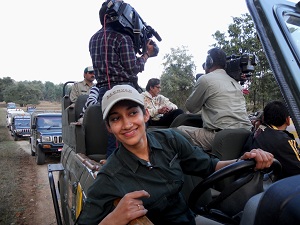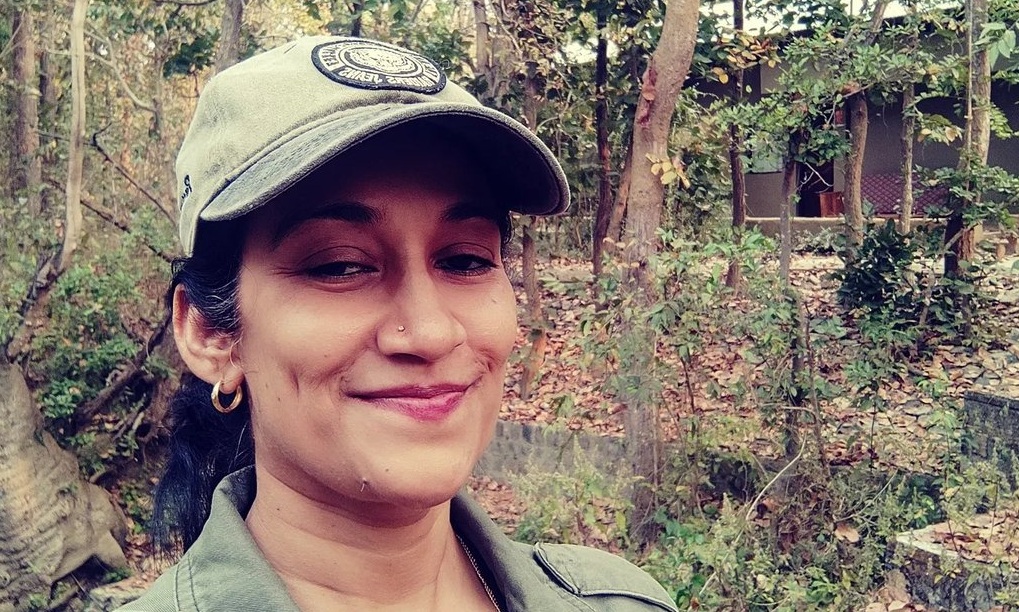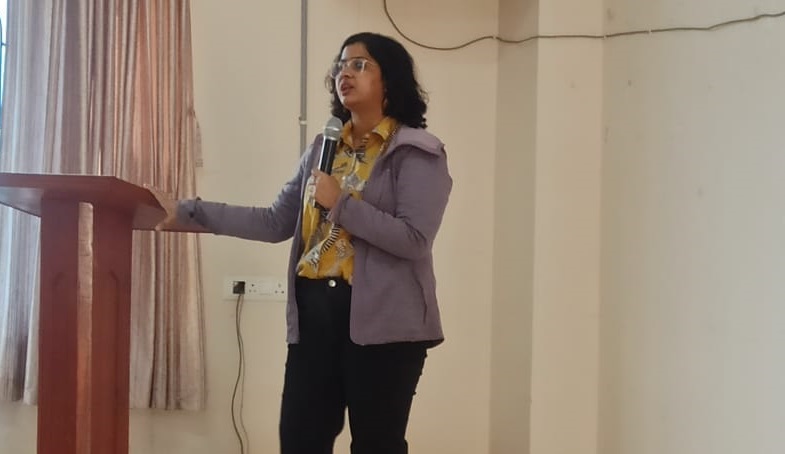Early in my career, once at an informal gathering of officers working in a district of lower Assam, a senior colleague, asked, “What makes one a good Deputy Commissioner?” Most of us, young officers fresh into our careers in the civil services fumbled for an answer. The senior colleague, wise from years of experiencewaited for our response with a smile on his lips.
Before any of us could finish replying, he quipped, “A good deputy commissioner is one who readily grants headquarters leave to his officers”
Two decades down the line as I look back on my career filled with its share of good and bad times, I realised how true the words of my senior colleague turned to be. I also realised that for officers working in the civil and police services, and posted away from family and home, few things could compare with the joy of being granted headquarters leave and few with the disappointment of being denied leave permission.
That senior colleague who had been like a guru of sorts for me also taught me the time tested technique of “taking a chance” by going out of station without permission sometimes.
“If you seek permission for headquarters leave from your boss too often, the chances are that he might not always approve it. So it is wise to stagger your requests for leave and quietly go out of station once in a while – without permission,” he advised.
“What if I am caught?” I asked innocently.
“In life you have to take chances and leave the rest to your stars,” the wise man said.
I nodded my head in agreement.
But no sooner had I put his advice to good use than my luck ran out. It was during Magh Bihu. Without seeking permission, I decided to spend the Bihu festivities at home in Guwahati. After the holidays, when I reached my station, a terse wireless message was waiting on my table directing me to meet Mr Bhattacharjee, the senior most Additional Deputy Commissioner of the district. I went down to the district headquarters and found a livid Bhattacharjee waiting for me.
“You were out station without informing us on the night of Uruka. The Police wanted a magistrate to conduct an inquest on the victim of a terrorist shoot out. I had to send someone from here to do it” the officer said in a tone of admonition. I was shocked. The colour went out of my face. I apologised for my lapse.
Mr Bhattacharjee, a kind person, accepted my apology and offered me a cup of tea. I was advised to be careful in future and the episode ended pleasantly.
On my way back, I happened to meet my guru and told him about the incident.
“Your stars did not favour you”, he said gravely.
“Better luck next time”, he said with an encouraging pat on my back.
That incident left a permanent mark on me. I was afraid to rely only on my stars. Thereafter, I made it a point to always seek permission for headquarters leave --- despite occasional disappointments. Of the latter, I remember one incident during my same posting quite vividly. Back then, my wife was working at a college in Dibrugarh and my son was just a toddler. I missed them a lot and at the slightest opportunity would board a night bus to Dibrugarh to be with them. Once I nervously approached the Deputy Commissioner for headquarters leave during the weekend. For some reason, he was not in a good mood and turned down my request. I became very upset and sadly walked to a PCO near the DC’s Office. This was before the mobile phone became part of our lives. Much to the PCO owner’s delight I spent the entire bus fare to Dibrugarh, a considerable amount, in conversation with my wife and kid on the phone.
Later I discovered an effective way of getting leave permission from the Deputy Commissioner which was used by some of my colleagues. One had to seek his permission for going out of station on the plea of visiting a temple, a than, a satra or a mazhar and our God fearing boss readily obliged without any ado.
Some bosses often use their power to grant leave like dispensing largesse. Those officers, who are, to use a cliché, in their good books are frequently rewarded with Headquarters leave and those who are not, are denied permission on the slightest pretext.
One incident of an officer not in the so called good books of the same Deputy Commissioner comes to mind. It was during the Denovo Intensive Revision of Electoral Rolls, a massive programme of updation and correction of voter lists launched in the state. The T N Seshan era in the Election Commission had just started. Strict guidelines were issued to all Deputy Commissioners to complete the programme on time. The district administration became fully involved with the programme; other official works were kept pending. All transfers and postings and leaves were cancelled. Regular meetings were called by the Deputy Commissioner to review the progress of the Programme. One such meeting called at short notice in the afternoon continued late into the evening and had to be adjourned till the next morning. The out station officers were directed to halt in the district headquarters for the night and report for the meeting the next morning. All of us stayed in the Circuit House except this particular officer. Despite the risk of getting caught, he decided to spend the night at his home in Guwahati and return early in the morning for the meeting. He called for his official vehicle, a ramshackle jeep which had seen much better days and was now awaiting its final days in the scrap yard. Besides the driver, two youths always travelled in the vehicle. They were engaged to push the vehicle whenever its engine stopped without notice in the middle of anywhere.
That evening, spurred by the officer’s full throated exhortations, the two fellows pushed the jeep around the lawn of the circuit house and after a brief while, brought it to life. The officer, one amongst a rare breed of dare devils in the civil services, gave us the thumps up sign and with a cowboy’s aplomb climbed into the vehicle and drove into the night. The vehicle gathered speed on the highway and within one hour reached the outskirts of Guwahati. Just as the vehicle crossed the Saraighat Bridge, disaster struck. The engine misfired several times and with a big tremble, the vehicle stopped on the middle of the road. The two sturdy fellows pushed the vehicle for a considerable distance but could not start the engine. Luckily, they were not too far from the officer’s residence at Jalukbari. They managed to push the vehicle to his house. After dinner, the driver and the two fellows tinkered with the jeep for some time but still could not start the engine. The driver was now a worried man as they had to be on time at the DC’s Office next morning for the officer’s meeting .The officer however was unfazed.
“Don’t worry. We will find a way,” he assured them.
Early next morning, the jeep was pushed to the busy crossroad near the Police Point at Jalukbari
“Ammijan will be here any minute”, the officer said looking at his watch. Ammijan was the name of the public bus that plied between Guwahati and the officer’s headquarters. He was a frequent traveller on that bus. A short while later, a large garishly painted bus appeared on the road and stopped near the jeep.
“Ammijan”, the officer said, recognising the bus.
The driver and handymen of the bus knew the officer well. He explained his situation and wanted a little help from them. They were readily willing to help him.
A helper climbed up the bus and threw a thick rope from the roof. One end of the rope was tied to the bumper of the jeep and the other end to the rear of the bus.
The officer climbed into the jeep. It started to move pulled by the bus. Whenever the bus stopped to pick passengers enroute, the jeep too stopped. The bus pulled the ancient jeep with the officer regally seated in front all the way to the adjacent district. The officer reached his destination on time to attend the meeting helped by the generous Ammijan. Through out the meeting, the Deputy Commissioner remained blissfully unaware of the officer’s indiscretion.
One unwritten rule that is rarely broken is that the community of officers always remain tight lipped even if they know that one of their colleagues is out of station without permission. Rather they would come to his rescue by quickly informing him about any unforeseen event that might occur in his station during his absence. But there are few who have no qualms about breaking this golden rule, just to ingratiate themselves with their bosses. They are the back stabbers who keep tabs on their colleagues and informed anything inconvenient about them to their bosses. However, most of us abide by this code of silence as faithfully as the legendary Code of Omerta is upheld. During my tenure at Bhuragaon Revenue Circle in Morigaon District, the devastating floods of 1998 inundated the entire Circle area. After the Brahmaputra had eroded the embankment that ringed the area, flood waters gushed into the low lying countryside, spreading everywhere. There was not a single patch of dry land around. Even my office and quarters were under water and I was forced to shift to a nearby higher secondary school. A massive relief operation was launched. One officer was temporarily deputed to Bhuragaon to assist me. He was the same dare devil officer mentioned earlier who had now been posted in Morigaon and once again became my colleague. After staying for a few days in the local IB, one day the officer informed me that he would be going to his ancestral village in Nagaon district for some days.
“Don’t mention this to anyone,” he requested. I noted down his address on my diary in case he was urgently required at Bhuragaon.
About a week later, I received a wireless message that the Minister in charge of the district and the Deputy Commissioner would be visiting Bhuragaon the next day. I realised that my truant colleague had to be informed about the visit. I sent a wireless message to the officer in charge of the local police station where his village was located, requesting him to inform my colleague about the Minister’s visit. My message worked. The information reached my colleague on time. He returned to Bhuragaon the same evening. The next morning, he was the first person to greet the Minister with a gamocha when the entourage arrived at Bhuragaon. The team visited a few relief camps and reviewed the relief works undertaken. Both the Minister and the Deputy Commissioner were satisfied with our efforts. Just as they were about to depart from Bhuragaon, my colleague politely approached the Deputy Commissioner and handed him an application for headquarters leave for a few days.
“Of course, you deserve it”, said the Deputy Commissioner and readily approved the leave.
My colleague thanked him and with a wink at me, dashed off to avail his headquarters leave, this time with permission.
Headquarters leave is a much more serious business with officers of the police services. My tenure in the Home Department became an eye opener for me. I saw the importance given by Police personnel on getting a formal permission for leave before moving out anywhere. Being absent without leave or AWOL as it is commonly known in the US armed forces, invites strict reprimand --- and punishment, if caught. An interesting case that I came across concerned a police officer who had once been asked by his superior on the mobile phone about his whereabouts. The officer happened to be in Guwahati without informing his senior officer. To avoid getting caught, he replied that he was somewhere in the jungle in his district on an anti insurgency operation. The senior officer somehow sensed that the officer was not telling the truth. He called for the tower location of the officer’s mobile phone from the telecom authority and true to his hunch it was revealed that the officer had actually been in Guwahati when he talked with him. The senior officer reported the matter to Police Headquarters which viewed it very seriously. The officer was suspended and a departmental proceeding drawn against him. In his reply to the show cause against him, the officer admitted his guilt and explained his conduct as “an inadvertent slip of tongue”
The disciplinary authority accepted the officer’s explanation as he had a good track record and was otherwise known to be a sincere and efficient officer. His lapse had occurred during one of the occasions when his stars did not favour him. He was warned to be careful in future and exonerated.


































